Gender Equality National Report Hungary - European-microfinance ...
Gender Equality National Report Hungary - European-microfinance ...
Gender Equality National Report Hungary - European-microfinance ...
You also want an ePaper? Increase the reach of your titles
YUMPU automatically turns print PDFs into web optimized ePapers that Google loves.
they employ fewer new employees in total, on the other hand they sack an employee less<br />
willingly.<br />
Potentially, both women and men, entrepreneurs that are graduates of business or<br />
technology are more likely to have larger businesses than those with other types of diploma<br />
or without graduation. This, of course does not mean that with any other degree it was<br />
impossible to have a successful business; however, having a degree in business or<br />
technology plays an important role in the success of larger enterprises.<br />
3.5.3 <strong>Gender</strong> equality in entrepreneurial culture Score 3.5<br />
a.) <strong>Gender</strong> equality in medial representation of entrepreneurship Score 4<br />
Results of “Global Media Monitoring Projects 2005” were presented by Réka Sáfrány,<br />
representative of IgEN Association. Most important conclusions are the following:<br />
The survey included news from television, radio channels and countrywide daily papers. The<br />
study used quantitative and qualitative methods to analyse the gender and roles of the news’<br />
subjects and the gender sensitivity within the news.<br />
In the 122 news pieces reviewed, there were 21 women (10.2%) and 185 men (89.8%); 34 of<br />
the journalists were female (53%) and 30 were male (47%).<br />
Besides female politicians, women are mostly represented in the news as private persons<br />
and rarely as professionals.<br />
Most of the news’ male participants are rulers and politicians, leaders of important public<br />
institutions, managers of financial institutions, entrepreneurs, athletes and sports managers.<br />
Although the share of men and women were almost equal among the journalists, female<br />
opinion has mostly been ignored; even female journalists’ reporting was focused on men.<br />
Low representation of women in the media is in connection with the fact that they also have a<br />
small share in the politics.<br />
We do not have direct data about the media representation of female entrepreneurs.<br />
According to expert estimations, in business papers and electronic media the share of female<br />
entrepreneurs is even lower. Based on the fact that there are twice as many businesses<br />
started by men than by women, one-third of the enterprises represented in the media should<br />
be owned by women; still this is not likely to be true.<br />
It is also important that that among small and medium companies the share of female owners<br />
is lower and often companies founded by women are also managed and represented<br />
generally or in a single project by men.<br />
Personality, motivational and risk-taking differences between women and men may also play<br />
a role in the disparity of media representation.<br />
All in all, the lower representation of female entrepreneurs in the media can not be attributed<br />
to gender discrimination but is mostly due to other reasons.<br />
In the past years, women tend to utilise in an increasing manner the options offered by the<br />
internet, the advantages of online education, information and the connections.<br />
For example, the webpage of female entrepreneurs offers a wide range of information about<br />
starting, maintaining and managing a business. It advises about support organizations,<br />
financing options and other important topics. It is also a channel to promote domestic and<br />
international best practises.<br />
There are several web pages that focus on gender mainstreaming.<br />
b.) <strong>Gender</strong> equality in the entrepreneurial role model Score 3<br />
“Traditional role model and role behaviour is strongly expressed among the Hungarian<br />
people” and “the domestic labour market prefers the long-term full-time employment of<br />
54



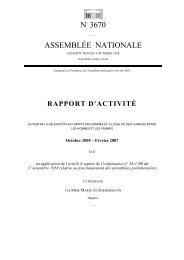
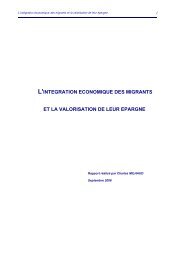

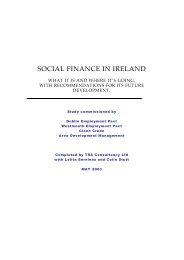

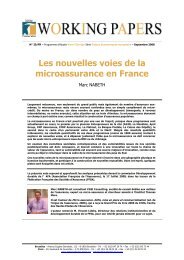

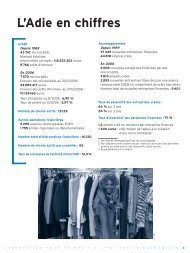

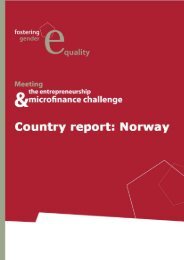
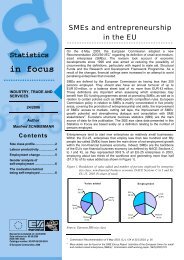
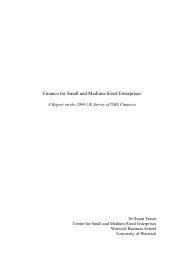
![Joint Report on Social Protection and Social Inclusion [2005]](https://img.yumpu.com/19580638/1/190x132/joint-report-on-social-protection-and-social-inclusion-2005.jpg?quality=85)
